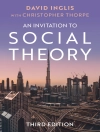Euthydemus Plato – The Euthydemus, though apt to be regarded by us only as an elaborate jest, has also a very serious purpose. It may fairly claim to be the oldest treatise on logic; for that science originates in the misunderstandings which necessarily accompany the first efforts of speculation. Several of the fallacies which are satirized in it reappear in the Sophistici Elenchi of Aristotle and are retained at the end of our manuals of logic. But if the order of history were followed, they should be placed not at the end but at the beginning of them; for they belong to the age in which the human mind was first making the attempt to distinguish thought from sense, and to separate the universal from the particular or individual.’Neglected for ages by Plato scholars, the Euthydemus has in recent years attracted renewed attention. The dialogue, in which Socrates converses with two sophists whose techniques of verbal manipulation utterly disengage language from any grounding in stable meaning or reality, is in many ways a dialogue for our times. Contemporary questions of language and power permeate the speech and action of the dialogue. The two sophists Euthydemus and his brother Dionysodorusexplicitly question whether speech has any connection to truth and specifically whether anything can be said about justice and nobility that cannot also be said about their opposites.’
Sobre el autor
Plato is a Classical Greek philosopher, mathematician, student of Socrates, writer of philosophical dialogues, and founder of the Academy in Athens, the first institution of higher learning in the Western world. Along with his mentor, Socrates, and his student, Aristotle, Plato helped to lay the foundations of Western philosophy and science.Plato is one of the most important Western philosophers, exerting influence on virtually every figure in philosophy after him. His dialogue The Republic is known as the first comprehensive work on political philosophy. Plato also contributed foundationally to ethics, metaphysics, and epistemology. His student, Aristotle, is also an extremely influential philosopher and the tutor of Alexander the Great of Macedonia












